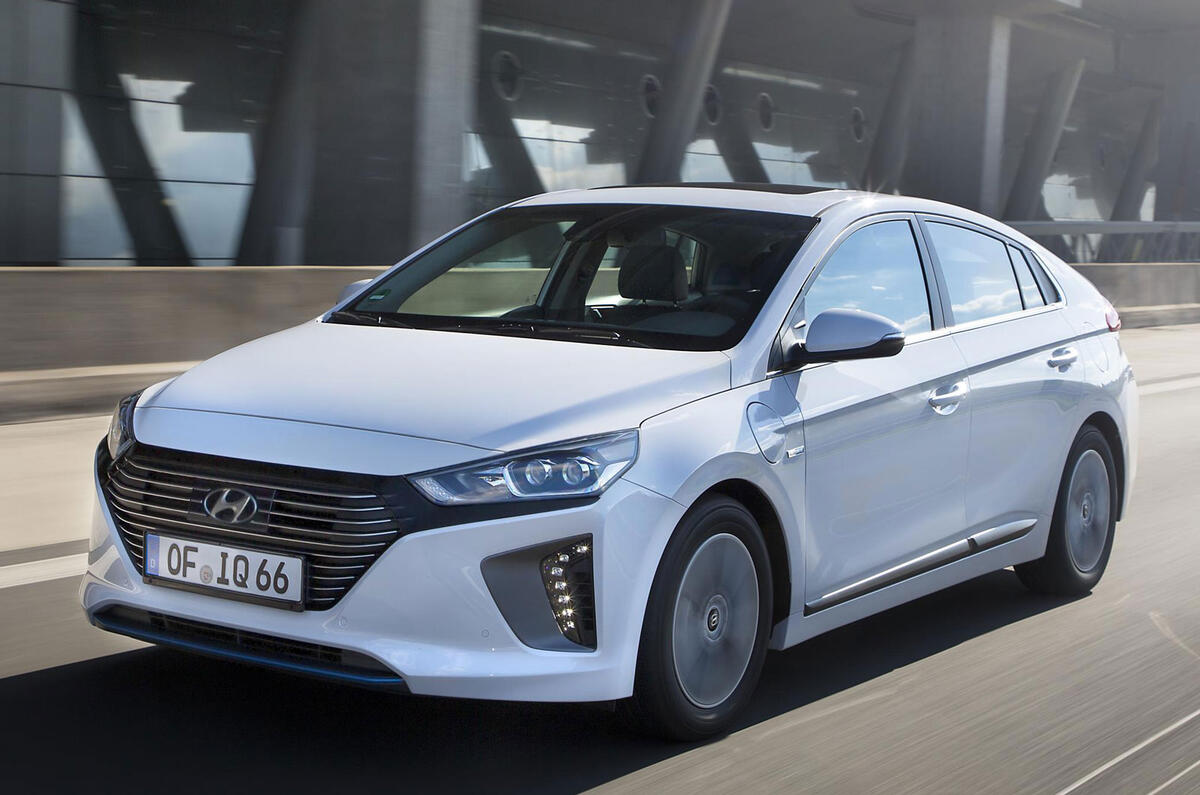The Hyundai Ioniq PHEV (plug-in hybrid) model will be the third and final variant of the electrified hatchback range to go on sale when order books open on the 13 July.
Priced from £24,995, the Ioniq PHEV slots between the hybrid and fully electric model that are already on sale, priced from £20,585 and £29,495 respectively.
The Ioniq is Hyundai's first dedicated alternatively fuelled model and also the first car from any manufacturer to be offered with three electric powertrain options within a single body type.
Futuristic Hyundai FE Fuel Cell concept revealed previews 2018 model

Engines and gearbox
The Ioniq PHEV combines a 104bhp 1.6 GDI direct-injection petrol engine and a 55bhp electric motor. The motor is powered by a 8.9kWh lithium ion polymer battery to enable a range of 39 miles in electric-only mode. The car produces CO2 emissions of 26g/km and can achieve up to 257mpg, according to the New European Driving Cycle (NEDC).
It joins the hybrid comprised of a 1.6-litre Kappa GDi engine that produces a peak of 103bhp and 109lb ft of torque, and a lithium ion battery-powered, permanent magnetic electric motor that contributes a maximum of 43bhp and 125lb ft of torque. The Ioniq hybrid is claimed to have a thermal efficiency of 40%, which conveniently matches its arch-rival, the Toyota Prius.

This efficiency is possible thanks to the combustion engine's use of optimised cooling and a 200bar six-point direct fuel injection system, while the electric motor benefits from declination coils that allow it to work with a claimed 95% efficiency.
Drive is sent to the front wheels via a six-speed DCT dual-clutch automatic gearbox that's been optimised to offer as much as 97.5% efficiency - another class-leading feature, according to Hyundai.
The Ioniq Electric features an uprated lithium-ion battery pack, and is good for an estimated 155 miles of range. Its electric motor produces 118bhp and 218lb ft of torque, with drive channelled through a single-speed transmission. In this form, the Ioniq has a top speed of 103mph.
A key standard feature of the electric model is rapid charge compatibility: it can be charged to 80% capability in 33min from a 50kW CCS Combo Rapid public charger. Owners can also plug their car into a conventional domestic charger. To help boost energy when on the move, the Ioniq Electric features regenerative braking which can be adjusted via steering column-mounted paddles.
































































Join the debate
Add your comment
Taking a Leaf out of VW's book
Look so much better than the
Looks good, technically interesting and sensibly priced